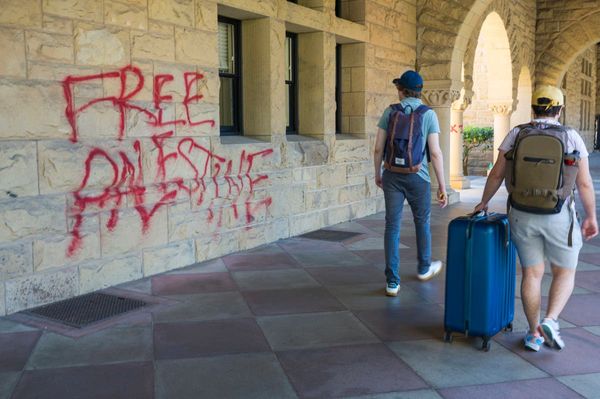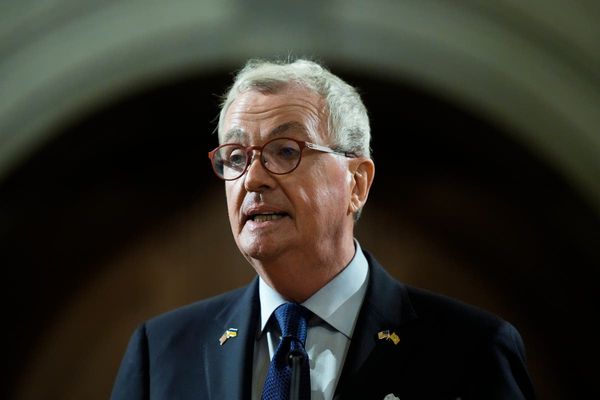
When Paul Viggers woke up and caught his father sneaking in with their presents on Christmas Eve 1965 “with no bearded old man in a red suit anywhere to be seen”, his main feeling was embarrassment for his brother. “After all, I was only eight and was already a bit suspicious … but he was 13, and really ought to have known better,” the 66-year-old retired teacher remembers.
Growing up in Gloucestershire, Christmas meant a familiar routine for the brothers. “One of us would notice a pillowcase was full and we’d be unable to hold back the excitement , shouting ‘He’s been! He’s been!’, before banging on the lights and diving to the end of the bed to see what we’d got,” says Viggers, who now lives in Spain.
But that year, things changed. Although he was wise to the ruse, Viggers still “carried on with the game” and the brothers had the “usual delight” of opening gifts. “But I was watching my brother pityingly … he still believed this childish stuff!”

A few days later, Viggers decided it was high time his brother knew the truth. His older sibling played along for a while, before telling him he already knew. “‘We had a feeling that maybe you didn’t believe it any more, and we’d been wondering when we’d have to tell you,’ he said, managing to sound both kind and superior,” Viggers remembers.
Psychologists have identified that children become sceptical about Santa Claus around the age of eight – as was the case for Viggers in the 1960s. Two decades later, Dafina Dimitrova was the same age when she had her world shattered.
Growing up in 1980s communist Bulgaria, Christmas was “wonderful but a bit traumatic” for Dimitrova. Every year, Father Christmas – or dyado mraz, as he was known there – brought her cousins, with whom she lived, better presents. They got Barbies, Lego, cassette players – “all things of unimaginable luxury at that time”, Dimitrova, 40, recalls.

She would compare their gifts with her own with a feeling of injustice. “My parents didn’t have a lot of money, I got very small presents. Once I got the communist equivalent of Barbie – she looked nothing like Barbie,” Dimitrova, who now lives in Oslo and works in development aid, says. “It always felt like I wasn’t good enough – Santa brought these big presents to my cousins, unthinkable things for most of us.”
When she was eight, Dimitrova plucked up the courage to ask her 11-year-old cousin about it. “She laughed and said there is no Santa, and they only get better presents because their grandfather works in West Germany.
“I will never forget sitting at the kitchen table and crying for hours. It felt doubly unfair. It wasn’t just that I found out he didn’t exist – I also found out life was very unfair.”
Philosophy teacher John Sprague, 52, remembers that he was always in the bath when Santa arrived at his childhood home in California. “There would be a loud and theatrical knock on the front door, followed by the voices of my aunts, uncles and cousins roaring from the next room: ‘Santa! How good to see you again. How was your year? John? … Yes he’s here but is busy having his bath! So sorry you missed him … again!’

“Mum would frantically dry me off and struggle to get my pyjamas over my wet legs. I’d dart into the living room to see my grandfather throwing one last wave out the closing door, the room now full of presents: ‘Oh! You’ve just missed Santa’!”
When Sprague turned seven he decided to take action. “That year I wriggled free from my mother’s grasp and darted, naked and wet, into the living room only to find my family frozen mid-gesture, pulling gifts out of hiding places, staring at me, staring at them.
“‘Oh no,’ I cried in despair. ‘Did I miss him again?’ They all then fell to the floor laughing.”
When Ruth Barrett was five, she remembers waking up early on Christmas morning and seeing her mum putting gifts inside her stocking in the living room. “I asked her what she was doing and her eyes widened in panic,” says the 56-year-old from Stratford, Ontario, in Canada.

Barrett, who works in audio description, remembers doubt creeping in further over breakfast. There was a knock at the door and there stood Santa Claus. “He called me by name with a twinkle in his eye and a jolly belly-laugh before handing me a mini-candy cane,” recalls Barrett.
Suspicious, she raised an eyebrow at her brother who suggested they go to the window and see if he drove a sleigh with reindeer. “On our neighbour’s front drive, Santa got into their blue Ford and drove away. That’s when my brother said: ‘Look, he stole Mr Thompson’s car!’
“That was the Christmas I found out the truth, I pretended to believe for another few years as it seemed to make my mother happy. I later learned Mr Thompson would make the rounds at the children’s ward of the local hospital – so perhaps there really was a Santa Claus after all.”







